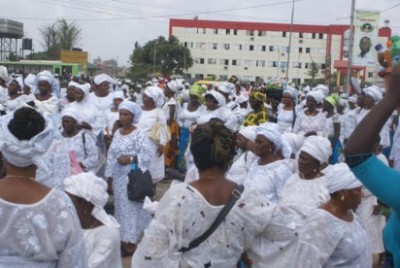
On March 16, Nigerian legislators refused to pass for second reading, the bill on gender equality.
The bill, titled ‘Gender Parity and Prohibition of Violence against Women’, would have, among other things, provided women quality in marriage, education and opportunities. This was not to be.
Some of the legislators cited religious and cultural reasons. Some said the constitution already provides for the rights of all persons in Nigeria and, therefore, eliminates the need for a codified instrument to protect the rights of women.
But here are five ways Nigeria, ironically, legitimises discrimination against women and the girl child.
CITIZENSHIP
Did you know that section 26 (2) (a) of the 1999 Nigerian constitution denies a woman the right to confer citizenship statues on her foreign husband but grants such rights to a foreign woman married to a Nigerian male?
ASSAULT
The criminal code doles out harsher punishment – felony – for assault against a man. Be you a woman, it is misdemeanour. Read here what section 353 of the criminal code says: “Any person who unlawfully and indecently assaults any male person is guilty of a felony, and is liable to imprisonment for three years. The offender cannot be arrested without warrant.” And read here what 360 says: “Any person who unlawfully and indecently assaults a woman or girl is guilty of a misdemeanor, and is liable to imprisonment for two years.”
MARRIAGE
Under Nigeria’s penal code guiding the northern parts of the country, “Nothing is an offence, which does not amount to the infliction of grievous harm upon any person and which is done by a husband for the purpose of correcting his wife. Such husband and wife being subject to any natural law or custom in which such correction is recognized as lawful.”
WORK
Section 55 of the labour act bans women from working in the night. “No woman shall be employed on night work in a public or private industrial undertaking or in any branch thereof, or in any agricultural undertaking or any branch thereof.”
POLICE
This must take the biggest piece – the police regulation.
Section 121 to 126 regulates the affairs of women in the way it does not regulate males.
Women police officers shall, as a general rule, be employed for duties that are concerned with women and children only. Married women cannot enlist in the police. Where an enlisted single woman wants to get married, she must have spent two years in the police and then apply for permission to marry.
She must furnish the police with particulars of fiancé who must be investigated and cleared before permission is granted. A married woman police officer “shall not be granted any special privileges by reason of the fact that she is married and shall be subjected to posting and transfer as it were unmarried.”
Also, an unmarried woman police officer who is pregnant shall be discharged from the force.
END

Be the first to comment